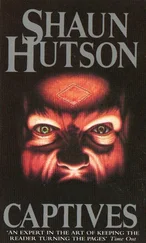Norman Manea - Captives
Здесь есть возможность читать онлайн «Norman Manea - Captives» весь текст электронной книги совершенно бесплатно (целиком полную версию без сокращений). В некоторых случаях можно слушать аудио, скачать через торрент в формате fb2 и присутствует краткое содержание. Год выпуска: 2014, Издательство: New Directions, Жанр: Современная проза, на английском языке. Описание произведения, (предисловие) а так же отзывы посетителей доступны на портале библиотеки ЛибКат.
- Название:Captives
- Автор:
- Издательство:New Directions
- Жанр:
- Год:2014
- ISBN:нет данных
- Рейтинг книги:3 / 5. Голосов: 1
-
Избранное:Добавить в избранное
- Отзывы:
-
Ваша оценка:
- 60
- 1
- 2
- 3
- 4
- 5
Captives: краткое содержание, описание и аннотация
Предлагаем к чтению аннотацию, описание, краткое содержание или предисловие (зависит от того, что написал сам автор книги «Captives»). Если вы не нашли необходимую информацию о книге — напишите в комментариях, мы постараемся отыскать её.
Captives
This is a moving account of a country shaken by communism and anti-Semitism and haunted by recent atrocities, from "a distinguished writer whose vision of totalitarianism is close to Kafka's cloudy menace, universal yet internalized" (Richard Eder,
).
Captives — читать онлайн бесплатно полную книгу (весь текст) целиком
Ниже представлен текст книги, разбитый по страницам. Система сохранения места последней прочитанной страницы, позволяет с удобством читать онлайн бесплатно книгу «Captives», без необходимости каждый раз заново искать на чём Вы остановились. Поставьте закладку, и сможете в любой момент перейти на страницу, на которой закончили чтение.
Интервал:
Закладка:
There were three men at the table near the podium. Father wasn’t one of them. Nor was Virgil Mehedinţi. Hadn’t seen them in the auditorium either. Besides, it would have been hard to make him out: the auditorium was large. Sitting there, huddled inside my overcoat, the orator’s words suddenly reached me, not because he commanded my attention, but because the words forced themselves on me; they came from inside me: I knew them so well it was as if I’d uttered them myself. I focused my attention, as they say, and followed the movements of the speaker’s lips and arms. I wasn’t crazy. I wasn’t hallucinating. The speaker was repeating sentences, words that were in me, in my classmates, and in all the citizens of the Republic, uttered and repeated so many times by everyone — perfect formulations, transmitted and learned once and for all, so that the least deviation or supplementary accent would have amounted to profanation. Blasphemy! Young and old, large and small, feeble and grandiose, we all went on parroting the exact same phrases and words: proof of our fraternity. I knew the words that would follow, and indeed they came, and then the ones that would have to follow. I knew them all. I gave up anticipating and started looking at the high vaulted ceiling of the formerly Austrian town hall and at the stained-glass windows that narrowed into a sharp triangle — the lancet above me and the other windows at a distance. Though it was now full of chairs with writing arms, this part of the building had once been a festivities hall. This was the first time I’d seen its frescoed vault and narrow — rectangular, triangular, rhombic stained-glass windows. It was terribly hot, as if I’d fallen into the steam of a foaming cauldron, and I’d been sitting there for a long time shrouded in the heat of my overcoat when I suddenly leapt to my feet like the others, though my eyes were already closed. Then I fell back into my overcoat and heard nothing else — except later, the chairs being moved and slammed, like the rain’s rapid-fire arrows on a rooftop or the overlapping clatter of many typewriters working together. My eyes were glued shut. I wasn’t able to open them. Virgil Mehedinţi’s heavy hand was on my shoulder. I murmured, stuttered, muttered without being able to move a muscle.
— I’m looking for Father.
— Good. Come with me.
Groggy, listless, and ashamed, I followed him up one flight of stairs. I dragged myself behind his long strides. I counted the doors: the third on the left in the corridor to the right. Two desks, exactly the same, perpendicular to each other. Mehedinţi passed behind the desk, lifted a chair over the desk, and put it in front of him — in front of me. Draped my overcoat over the back of the chair and sat down. The two of us were face to face. Recognized his white hair, his thick black mustache and large hands: it was Virgil Mehedinţi indeed, the one I’d followed for so long, and I had felt his large, powerful hands on my shoulders and his soft, calm voice. He was explaining Father’s absence. Somewhere in the middle of his sentences I realized that Mehedinţi was replacing my father. My folks would have to lose me and only retain the new offspring, Donca, to remind them of what they didn’t want to forget: that they were reborn to life and had found the courage to forget everything from the past that needed to be burned and scattered, so the past could remain the past.
Comrade Mehedinţi had already told me that Father would be away at a school for a while. Then he repeated himself, perhaps because I wasn’t paying attention, though he didn’t seem to want to draw my attention to the fact, and he added that maybe it was better this way. At the new workplace, Father would be able to highlight his honesty and discipline.
— Especially at the beginning, a former bank clerk doesn’t get along very well in today’s rather complicated context. After finishing school, which will be, rather, a way of getting up to date with the laws, he’ll be our spokesperson in a place of utmost importance. He’ll probably do that very well. He’s conscientious and upright.
Virgil Mehedinţi had a white shirt, powerful hands, and a warm baritone voice — not surprising for his large, heavy body. I went on listening to him and maybe I spoke as well. Maybe he said something else to me. I noticed a narrow black ribbon on the lapel of his jacket. He saw me looking at it, and he told me that his father-in-law, Ileana’s father, had died several days ago. It was scandalous, this officially frowned on cult for the dead with its suggestion of protracted religious ritual, but he went on talking to me about his father-in-law, a big shot lawyer, who was, according to him, a delicate, cultivated person of exemplary probity. I didn’t have time to be surprised. I was discovering that with gifts of money and shelter in hard times Ileana’s father had helped him and his comrades and their subversive organization. Conciliatory and disturbing, my new parent, this Virgil Mehedinţi! What might I have achieved with this father who didn’t hurry to make arrangements or thrust me onto the ledge of other HAVE TO s. Cold and fatigue caught up with me again: I was afraid of getting to know this man who was wasting time in such an unexpected conversation. I pulled on the sleeves of my overcoat to run home, to sleep in my warm bed. Mehedinţi took my hand. He shook it slightly, and clutched my shoulder.
I was rushing down the corridor when I heard his raised voice:
— Shut the door tight.
The door had been cautiously pulled into the edge of the doorframe. It had rotated slowly, noiselessly, so no one could hear, so the movement was imperceptible, so no one would realize — so no one would see my frightened face, my sneaky eyes, my hunched shoulders. Should have gone back to push the door, but didn’t have the strength. Needed to hide, to slip away quickly, without being noticed, followed, and apprehended. Practically somersaulted down the stairs into the snow so his voice wouldn’t reach me.
Donca had pushed off the covers, and she was breathing noisily. The light was extinguished in the next room. Shed my things in a rush to hide myself, sink under the soft, fluffy feather bed, and lose myself under the covers, which were thick, light, and kind. Stretched my legs on the narrow sofa, then my arms. Closed my eyes. My parents’ whispers reached me through the door. They were discussing Father’s departure and the prospect of his transfer as a demotion, a retreat toward the second line of battle. So now Mother’s irritated voice was pronouncing the words “sickly correctness” and enumerating proofs that Father had refused the minimal “natural” advantages of the work with which he had been entrusted. Hearing it for the first time, it surprised me to learn how much wood was used to heat our damp, old, two-room dwelling, which might have been exchanged for something better a long time ago. Mama listed the debts they had accumulated before each fortnightly salary, and, being overly nervous, she named names — some of them in the public eye. She was talking about people who didn’t have to go through the usual struggle to get supplies, “and, who knows, maybe something else on top. .” My guilty father wasn’t answering. She kept on grumbling. He let her go on without interrupting. He whispered, “C’mon, let’s sleep.” Her voice broke off. Their words mixed in a low murmur, which couldn’t be understood. The window was white. Donca was breathing with difficulty on her narrow sofa. A fine film of ice had settled on both sides of our bedroom window.
Like an athlete the night before a touch match, Sebastian Caba would go on sleeping dreamlessly under his rough blanket. Having prepared well, he’d be confident of victory. Father would go away to a place where he’d been long ago and from which I’d not succeeded in bringing him back. Mama would keep struggling with everything I’d ignored in my foolish overconfidence. Our friend Ileana’s father had died; the once rich lawyer now had the luck to be mourned by his son-in-law; I had believed Mehedinţi was harsh and unfeeling, but he had presented a new face, to my amazement. For just a few moments he had been this runaway’s desired parent, until his voice became suddenly commanding. Comrade Virgil Mehedinţi didn’t need a son who wasn’t able to close a door properly. No one rushed to adopt a self-imagined orphan who had wasted “earth and time” and who was ready to forget that today makes ten years and that tomorrow will be Thursday, the day when I must be alone with the enemy and break my sword in its sheath before the battle.
Читать дальшеИнтервал:
Закладка:
Похожие книги на «Captives»
Представляем Вашему вниманию похожие книги на «Captives» списком для выбора. Мы отобрали схожую по названию и смыслу литературу в надежде предоставить читателям больше вариантов отыскать новые, интересные, ещё непрочитанные произведения.
Обсуждение, отзывы о книге «Captives» и просто собственные мнения читателей. Оставьте ваши комментарии, напишите, что Вы думаете о произведении, его смысле или главных героях. Укажите что конкретно понравилось, а что нет, и почему Вы так считаете.












